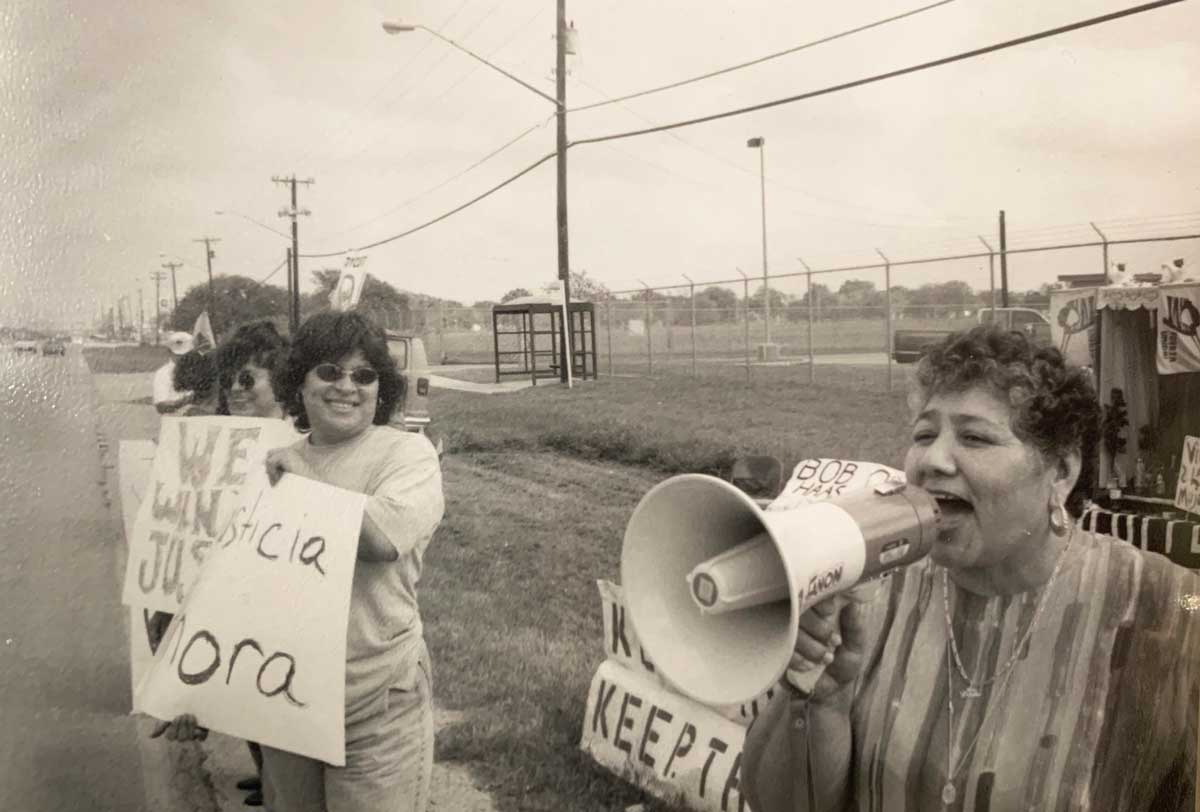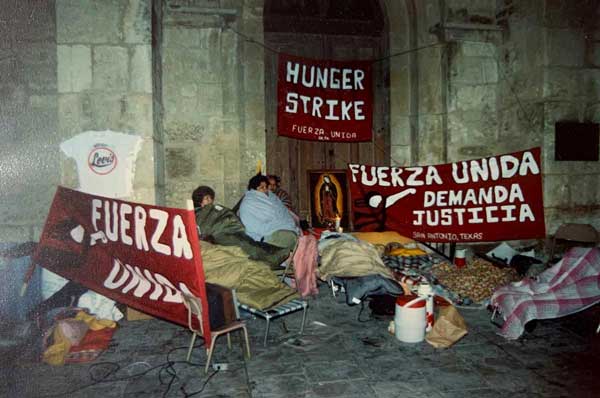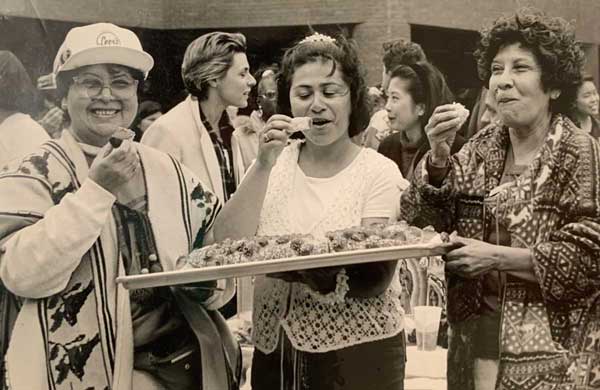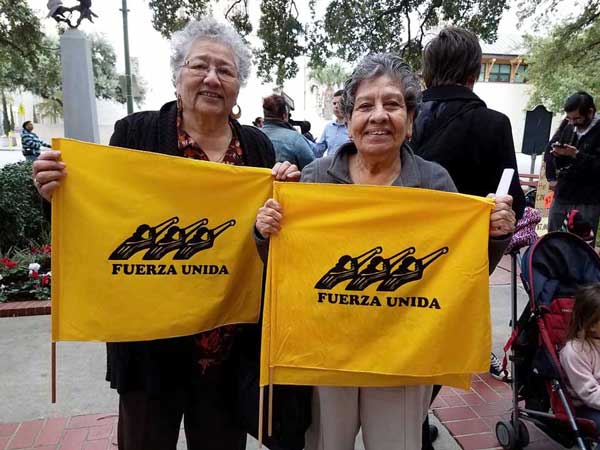
MAY 4, 2021 — San Antonio social justice nonprofit Fuerza Unida is donating its collection of historical documents to the UTSA Libraries Special Collections to preserve its legacy of empowering women workers and encouraging social, economic and environmental justice.
The collection contains hundreds of papers, photographs, videos and ephemera chronicling the role the organization played in advocating for the rights of garment workers from the South Side of San Antonio.

Fuerza Unida was founded after 1,150 garment workers—many Mexican American women—were laid off from the local Levi Strauss plant in 1990. Two of those displaced workers, Petra Mata and Viola Casares, banded together with hundreds of other former employees to fight for severance pay and labor rights.
“We had given so much energy, so much knowledge and so much of our lives to the company, and they treated us like we had no value as human beings,” said Mata in Spanish. “After years of advocating for individual benefits, they closed the plant and didn’t prepare us financially or psychologically. So, we made it our mission to work for the rights of people like us so that future generations don’t suffer the same fate.”
Mata and Casares spent much of the 90s advocating for justice and organizing boycotts, hunger strikes and protests to bring attention to the rights of all workers. They hope that by donating their records to the UTSA Libraries, they will help inspire the next generation of social justice advocates and researchers.
“We feel like it’s so important for us to share our story and our history with the university and with students. It’s not just me, Viola and Juanita. It’s the 1,150 workers that were displaced in one minute,” Mata said. “Sharing our stories will keep alive the 30 years of our life’s struggle—the sacrifices, the fight, the hunger. We want our lives to count, and we want the voice of workers to count and to be remembered.”

Items in the archive will be organized and cataloged by Special Collections staff and will eventually be available to students, researchers and community members as non-circulating items.
“Documenting and preserving the history of Mexican American activism in San Antonio and South Texas is a central focus for us, and we are honored and grateful to Fuerza Unida for entrusting us with their archives,” said Amy Rushing, assistant dean for Special Collections at UTSA Libraries. “We hope students will be able to use and learn from the years of hard work by Petra, Viola and so many others from the organization.”
Today, Fuerza Unida continues its work by providing support to members through various community programs, including a food pantry and community garden, a sewing cooperative and a youth leadership program.
“Our goal is to continue being a beacon for social justice in San Antonio by offering programs that promote fair labor environments for workers in our community, especially for women,” said Chayo Flores Zaldívar, president of the board of Fuerza Unida. “Preserving these important documents will help keep the legacy of our founders and the many women of the South Side alive in our community. Their legacy has enabled us and inspired us to continue the fight.”

With the donation of the documents, Fuerza Unida is sharing the last 30 years of records documenting various lawsuits filed on behalf of the group and sharing information on the administration and operations of the organization.
Mata said she hopes the collection will inspire student research, community engagement and future social activism.
“Our struggle has been painful and sometimes we cried. But sometimes we laughed as well,” she said when asked what advice she had for students who will interact with the archives. “Be insistent, be consistent and have lots of perseverance. If you have a goal, get to that goal. For one reason or another, God has us here on Earth, and if we can make a difference in one person’s life, that’s a win for us.”
The UTSA Libraries Special Collections brings national recognition to the university for distinctive research materials documenting the diverse histories and development of San Antonio and South Texas. Collecting priorities include the Mexican American community, activists and activism, women and women’s organizations, art and artists, the history of the African-American and LGBTQ communities in our region, Mexican cookery, San Antonio’s culinary history, urban planning, and UTSA’s history.